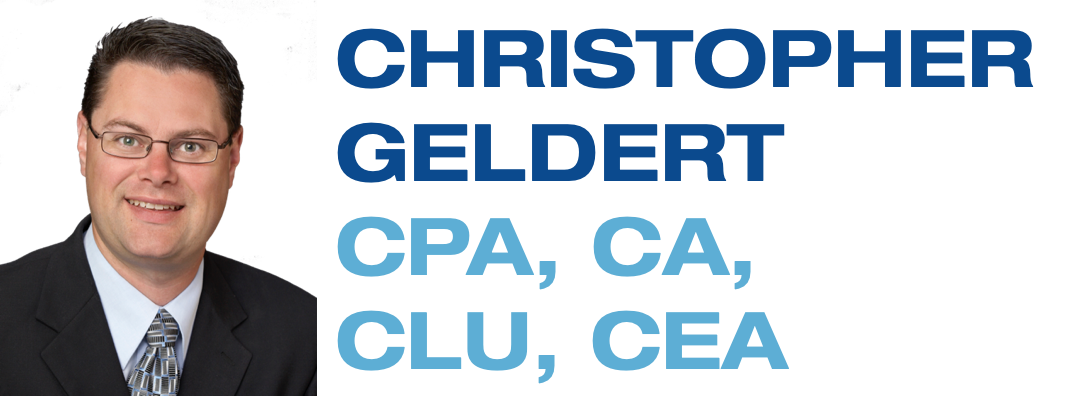Chris Geldert CPA, CA, CLU, CEA
Navigating corporate structures and the insurance world can be difficult. I specialize in assisting business owners protect, realize and transfer the value of their business and corporate wealth. I guide owners through the process and work with their various professionals to ensure solutions implemented properly manage risks and maximize benefits. Above all, I work to earn your business.

Stop Living Paycheque to Paycheque and Start Living
Blog, Coronavirus, Debt, financial advice, Financial PlanningExtended COVID-19 Federal Emergency Benefits
Blog, Coronavirus, Coronavirus - Associates, Coronavirus - Practice Owners, Coronavirus - RetiringSelf-employed: Government of Canada addresses CERB repayments for some ineligible self-employed recipients
Blog, Coronavirus, Coronavirus - Associates, Coronavirus - Practice Owners5 Top Financial Planning Strategies For Small Business Owners
Blog, Business Owners, Debt, taxTFSA vs RRSP – What you need to know to make the most of them in 2021
2021, Blog, RRSP, Tax Free Savings AccountImpact of Recent Events On Your Estate Plan
Blog, Estate Planning2021 Financial Calendar
2021, Blog, personal finances, RDSP, Registered Education Savings Plan, Retirement, RRSP, tax, Tax Free Savings AccountGovernment of Canada to allow up to $400 for home office expenses
2020, Accountants, Blog, Business Owners, taxBusiness Owners: 2020 Tax Planning Tips for the End of the Year
2020 Only, Blog, Business Owners, Coronavirus, Coronavirus - Practice Owners, corporate, Estate Planning, financial advice, Financial Planning, incorporated professionals, Investment, Professional CorporationsHighlights of the 2020 Federal Fall Economic Statement | Additional $20,000 CEBA loan available now
Blog, Coronavirus, Coronavirus - Associates, Coronavirus - Practice Owners, corporate, disability, Financial Planning, RDSP, tax